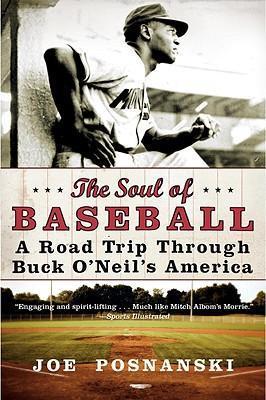To a cursory observer, the Negro Leagues can appear shrouded in mystery, an incomplete and romantic collection of legends with just a little bit of factual documentation to provide a loose framework.
But what I’ve found in reading dozens of books and hundreds of articles on the subject is that, thanks to the tireless work of capable historians, there’s a whole lot more truth known than you might ever have guessed. The truth doesn’t remove all of the romance attached to black baseball, but there is certainly enough of it to refute blatant falsehoods.
In one chapter of The Soul of Baseball, while attending a funeral Buck O’Neil meets a man from the Chicago area who claims to be a former Negro League player named Johnny Washington. Another man at the funeral adamantly protests that this man did not play in the Negro Leagues and in fact may be co-opting the identity of a real Johnny Washington.
The funeral described in the book occurred in 2006. I presumed that research done since the publication of The Soul of Baseball would shine light on the controversy of Johnny Washington. But as it turns out, a lot of work on the subject had already been done.
By 2005 there was no question that the man claiming to be Negro Leaguer Johnny Washington in the book had already been shown to NOT be a relatively well-known player named Johnny Washington. That man’s identity was well known – his death having occurred in 1999. No mystery there.
So the only questions – not clearly defined in the book – are whether there were two Johnny Washingtons playing around 1950, and whether the things the younger Washington claimed about himself are true.
There is no question that an older Johnny Washington played from 1933-1950. https://www.baseball-reference.com/bullpen/Johnny_Washington_(Negro_Leagues01)
But was there a younger Johnny Washington who had a “real” Negro League career?
A couple of articles written around 2005 claim adamantly that the younger Johnny Washington never played in the Negro Leagues.
From the Chicago Tribune:
https://www.chicagotribune.com/news/ct-xpm-2005-09-16-0509160147-story.html
And from a webpage dedicated to Double Duty Radcliffe:
http://chicagobaseballmuseum.org/double-duty-classic-cell-carries-royal-name-negro-league-history/
But there may be some more recent research to show that a younger Johnny Washington from Chicago did play in the Negro Leagues.
According to Baseball Reference, there was a Johnny Madison Washington who played for the Houston Eagles 1950 – he got a whole two at bats! He was born in 1930, in Chicago, and is still alive according to the page:
https://www.baseball-reference.com/register/league.cgi?id=74b37fa0
The Johnny Washington in the book would be about the right age and about the right size – listed as 5’11, 170 – to match the one on Baseball Reference.
Now anyone who knows much about the Negro Leagues can tell you a few of things:
- Baseball Reference only shows league games played in the Negro Leagues
- players who played in any league games for a Negro League team probably also played in some non-league (often called “barnstorming”) games.
- if a player reached the Negro American League in 1950, he probably played in some segregated minor-league/developmental-level league games in order to get there. In that person’s mind, those may qualify him as having played in the Negro Leagues.
- record keeping was always sketchy with the Negro Leagues, and barnstorming games may not have been recorded anywhere
The four factors above do not, however, lend a lot of credibility to the Johnny Washington in The Soul of Baseball. The other articles above state that this Washington laid claim to some very confusing things about himself – that he integrated the Boston Red Sox (impossible), that he was derailed by the Korean War and received Purple Hearts (doubtful), and he played for the 1956 Buffalo Bison (this page shows no Johnny Washington: https://www.statscrew.com/minorbaseball/roster/t-bb10631/y-1956).
Add to that his claims to have played with and against people who have no recollection of him, and this Johnny Washington better not volunteer for any lie detector tests.
But I plan to ask author of The Soul of Baseball Joe Posnanski about this when he visits the Topeka & Shawnee County Public Library on Feb. 17. Hopefully he’s learned more about the mystery of Johnny Washington since publication of the book.
Before that, you can join in remembering the men of the Negro Leagues by reading The Soul of Baseball. The Topeka & Shawnee County Public Library is sponsoring a community read of book, and has dozens of copies available. I will participate in a group discussion of the book on Feb. 16.
